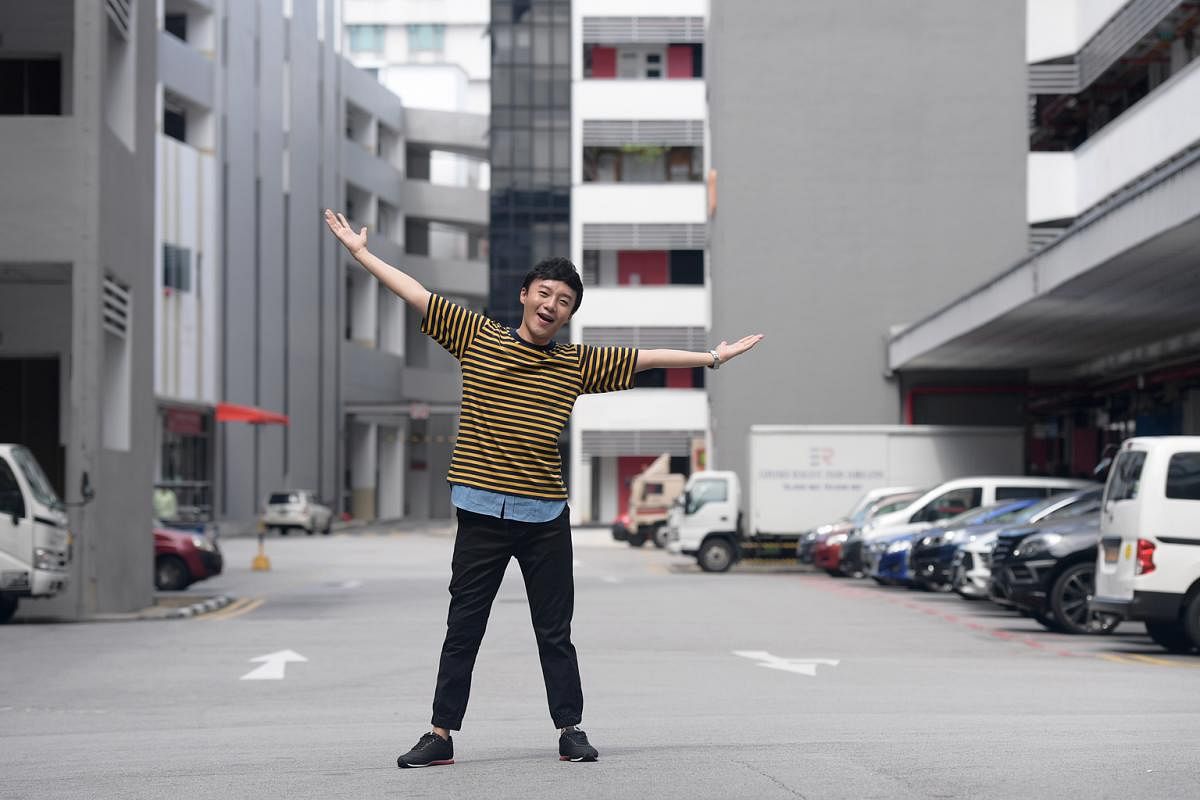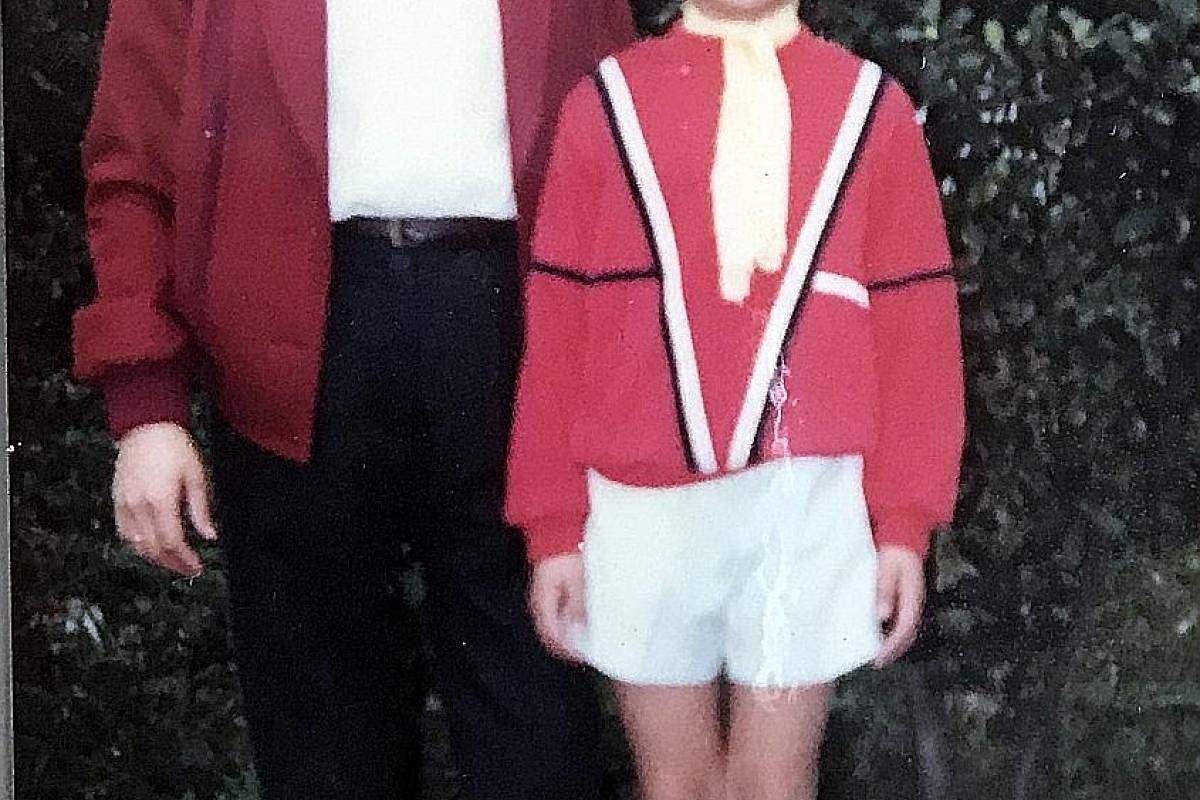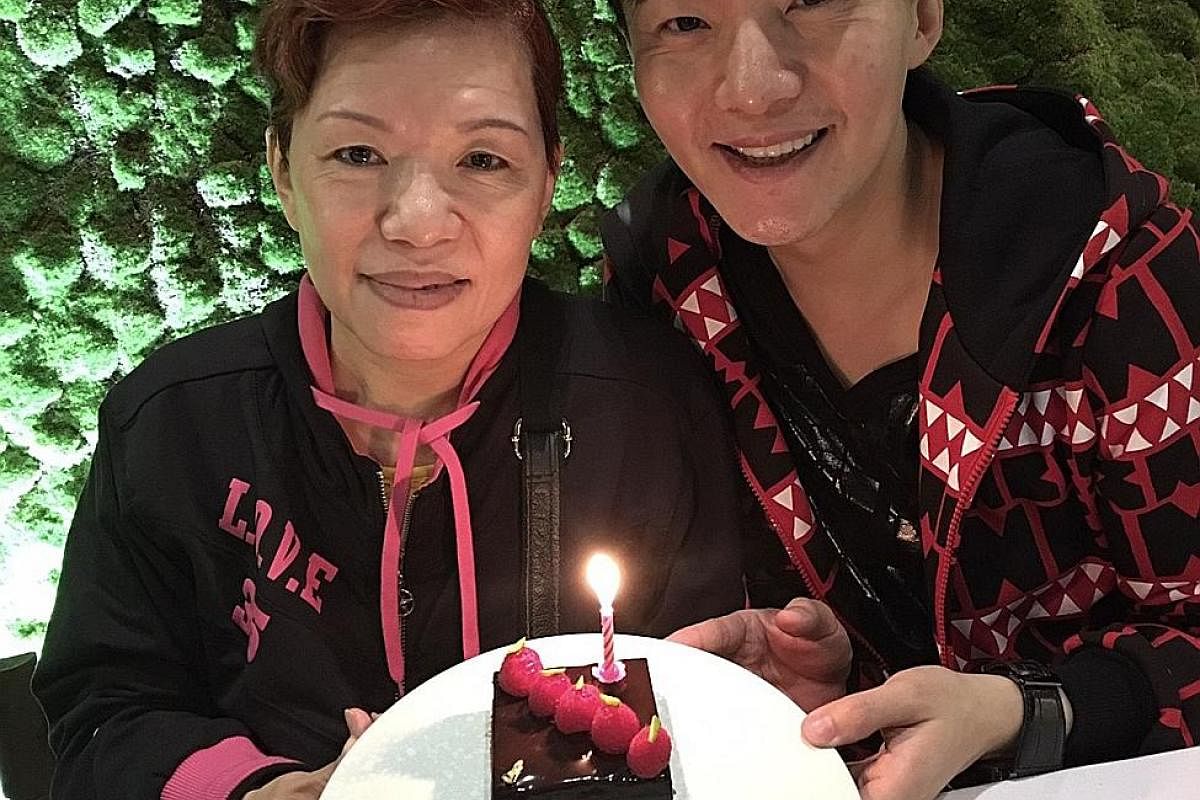The Life Interview With Hao Hao
Taiwanese getai star Hao Hao: Singapore fans make me feel like huge pop star
Getai singer-host Hao Hao has loyal fans trailing him with LED signs and showering him with gifts and food. He tells The Straits Times that his success is a result of sheer hard work





On any given night at a getai show here, the loudest screams are not reserved for some scantily-clad girl group gyrating on stage.
Instead, they are for Hao Hao, a male singer-host from Taiwan who is beloved as much for his fanciful stage costumes as his ability to sing in both male and female voices.
As soon as the 36-year-old steps into the spotlight, his loyal fans rush forward - easily standing out with their LED-light signs, handmade posters and yellow T-shirts.
All that attention, mostly from "aunties" above 50 years old, does not go unnoticed by the performer.
He tells The Straits Times in Mandarin: "I really, really feel appreciated by the Singapore audience. Some people see getai as just a lowbrow heartland show, but the audiences here have always made me feel like a huge pop star. It's amazing."
That is why he has chosen to stay in the Lion City after making his getai debut here in 2007, instead of returning to his native Taipei.
"If I was in Taiwan, I would never have done this well. In the getai scene there, people are interested only in seeing lamei (hot girls in Chinese) dance on stage.
"But here, getai performers - male or female, young or old - can go very far, as long as they have talent."
Hao Hao, whose real name is Cheng Shih-wen, has certainly found much success in local getai.
Getai are open-air concerts held during the annual Hungry Ghost Festival in the belief that they will appease the spirits wandering the earth during the period.
During this year's Hungry Ghost season, which kicks off tomorrow and runs until Sept 19, Hao Hao is booked out for shows daily.
Not that he is idle the rest of the year. He performs at least three to four nights a week at charityrelated shows commissioned by temples, as well as private functions funded by organisations and companies.
He declines to say how much he earns, but a Sunday Times article in November 2013 reported that he charged $1,200 to $1,500 to host a three-hour show that year, which was about $300 to $500 more than his peers.
There is, of course, also the hongbao or red packet money.
While it is common for getai singers to receive token hongbao after a show - usually anywhere from $2 to $100 - Hao Hao made headlines for receiving a particularly lavish gift in 2013.
At the Getai Awards held in September that year, an unnamed supporter reportedly from the property industry presented him with a $10,000 money garland made out of $1,000 notes.
Besides monetary gifts, his fans whip up food for him too. Sometimes, it is a homey pot of soup; other times, it is an entire meal of rice and stir-fried dishes. "You shouldn't ask me what kind of food they've cooked for me.
You should ask me what they haven't cooked for me yet," he says.
"Sometimes, I am too full to have another bite, but they just want to see me well-fed and happy. It's very sweet of them, but I always feel so paiseh (Hokkien for embarrassed)."
Besides his fans, he is also recognised by industry players as the top getai performer. He has racked up 26 awards, most of them from the Shin Min-Wanbao Getai Awards, an annual event that recognises the top names in the industry.
For the past three years, he was named Best Male Getai Singer. Last year, he also took home the award for Best Male Emcee.
These are on top of the popularity prizes he has picked up every year since the awards were launched in 2008, either for Most Popular Male Singer or for being a Top 10 Most Popular Getai Artiste.
He quips: "I've been getting so many trophies, I don't have space for them at home anymore."
He points out that much of his success boils down to consistent hard work.
"I've definitely been very lucky, but I put in the effort too. I always do my best, that's important to me," he says.
He spends hours designing his elaborate costumes, for example - something that he has become known for. It is not uncommon for him to wear three different costumes to sing three songs in one night.
The intricate sequinned outfits, which are tailored in Malaysia or Taiwan, can cost between $900 and $2,000 each and are rarely worn again after one getai season.
He has so many costumes - "maybe more than 600", he says - that they take up two bedrooms in his five-room HDB flat.
He takes time to get to know his fans personally as well, many of whom he knows on a first-name basis. He is on such good terms with some that he affectionately gives them nicknames.
He says with a chuckle: "I like to joke with them. There is a bunch of ladies that I call the 'jealous group' because they always get jealous if they see me talking to other fans.
"There're also the 'gossip group' and the 'noisy group'."
Ms Kathrine Lee, the leader of his 1,000-strong fan club, is so dedicated to him that she acts as his personal assistant for free.
Bumpy path to success
At the photo shoot for this interview, the retired office administration executive helps to watch over his bags and passes him tissue paper to wipe his sweat.
The 56-year-old tells The Straits Times: "I've been a fan from the start because of how talented he is. Some people call him 'qianbian wangzi' (Chinese for 'prince of a thousand faces') because he is constantly surprising us on stage.
"He is also very witty and very respectful of anyone he meets, no matter their age. He checks on how elderly audience members are doing, which is very nice."
Hao Hao's path to success has not always been smooth.
In 2009, his career here almost ended when he got in trouble with the authorities for dressing up as Marilyn Monroe and flashing his G-string during a show.
Although cross-dressing had always been a part of his performances - he sings in both male and female voices - it is believed that some audience members lodged complaints.
He was called up by the police for breaching getai rules, including for being indecently dressed and not having a permit to cross-dress. He was let off with a warning.
He says: "Cross-dressing and singing in different voices were how people came to know me. After that happened, I wondered what I would do."
Instead of quitting, he stopped cross-dressing and took up getai hosting.
"I practised by talking as much as possible to everyone I meet. I also watched a lot of Taiwanese variety shows, such as those hosted by Jacky Wu and Chang Hsiao-yen, to get inspiration.
"Luckily for me, it seemed to work. People responded."
Growing up, he had always been quick to adapt to changes.
An only child, he had to help out with household expenses after his father suffered a stroke when he was only seven years old. His father, a retired soldier, was bedridden for 15 years before he died in 2004.
Hao Hao's mother, 61, is a polio victim and has difficulty walking. She used to run a karaoke bar and now lives in Taipei, where she has her friends.
Hao Hao says: "I did all sorts of odd jobs from my primary school days. I was not interested in studying and we needed the money. I delivered newspapers at 3am on school days and apprenticed at a printing company after class."
His favourite part-time job, however, was singing.
His uncle was a getai host and roped him in to sing at shows when he was 13. He says: "I was a novelty act, being a young kid. But I remember that I loved the feeling of being on stage and performing."
He loved it so much that he even sang for a few months at a strip club when he was 16 - never mind that no one in the audience was interested in listening to him.
"From the stage, you could see a red light. When that red light went off, it meant that the police were coming to raid the place. That was when the girls would run to the back and I had to go on stage to sing," he recalls with a laugh.
"I just took the experience as practice in performing. Also, I learnt to have thicker skin because no one in the audience was paying attention to me."
In 2007, a friend introduced him to sing in Singapore on a two-year contract with NTUC Club, NTUC's lifestyle arm that includes clubhouses and resorts.
About half a year after moving here, he performed at a getai show on his day off and was such a hit that he was asked to perform again the next day.
He says: "I never planned to stay in Singapore beyond the two years. But when the people here treat me so well, how could I leave?"
Ten years on, his passion for getai has only grown, he says. But he wants to try other things, such as television acting and stage work.
Last month, he went for a 10-day meditation retreat in Taiwan, as he had "some thinking to do".
The bachelor says: "I am very lucky to be doing well now, but I know that I also have to keep improving.
"I keep telling myself, 'You can never become complacent. You cannot just keep doing the same thing, or people will lose interest. You can never get too comfortable.'"
•Follow Yip Wai Yee on Twitter @STyipwaiyee
Join ST's Telegram channel and get the latest breaking news delivered to you.
A version of this article appeared in the print edition of The Straits Times on August 21, 2017, with the headline Taiwanese getai star Hao Hao: Singapore fans make me feel like huge pop star. Subscribe

